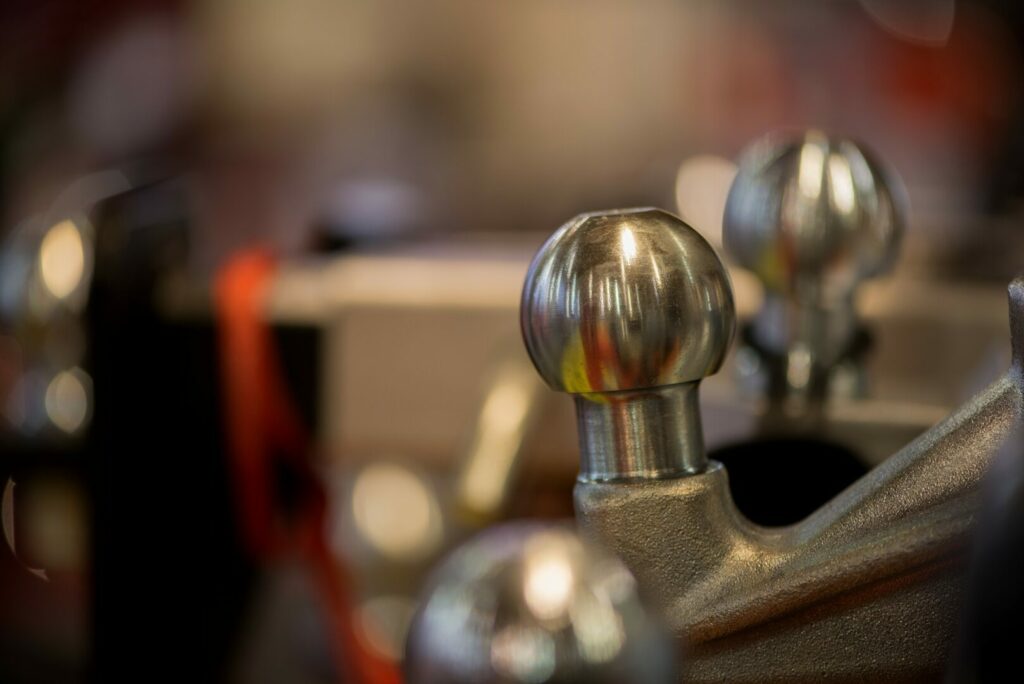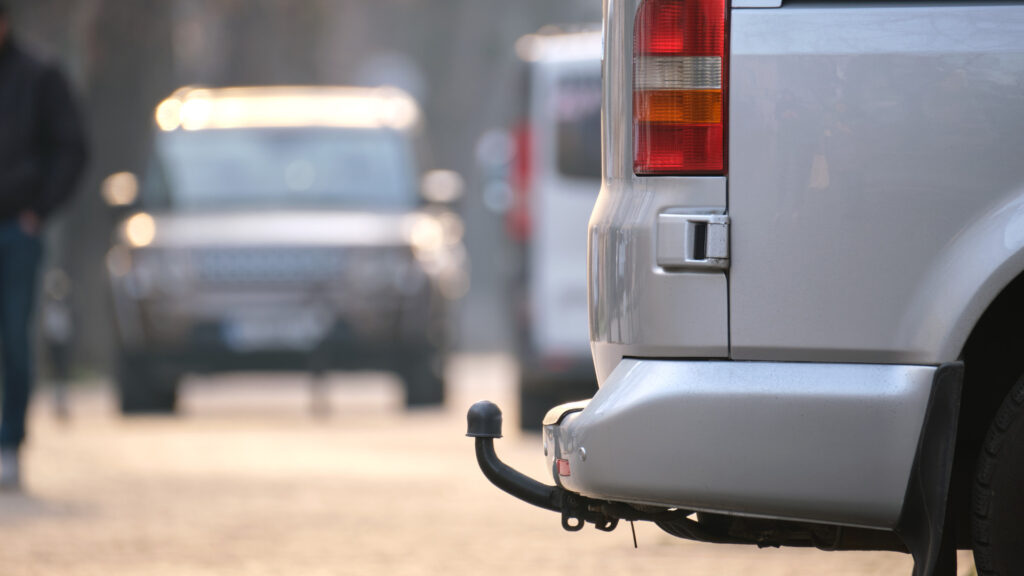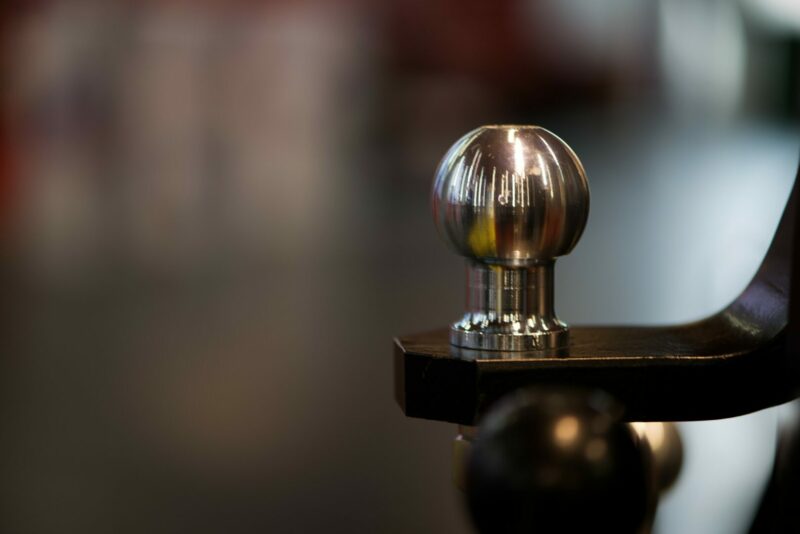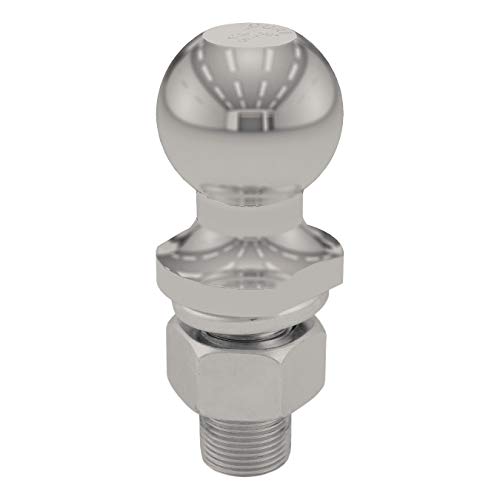Table of Contents Show
When you want to tow a trailer or RV behind your vehicle, grabbing the right ball hitch is essential. Your vehicle won’t tow at its best efficiency without the right parts. Understanding the dynamics of the right size ball hitch is vital.
If you’re gearing up for a summer adventure, start by doing a little research. Keep your travel party safe by arming yourself with knowledge. These tips will help you choose the right ball hitch size for your next excursion. Let’s get started!
What Is a Ball Hitch?
A ball hitch is the little silver ball you see on the back of a truck or SUV. It’s part of the system you use to attach a trailer or RV to the back of your vehicle. A receiver hitch accessory gives your trailer something to hold onto when connecting it to the hitch.
What is Ball Hitch Shank?
The hitch on your truck or SUV will have an open square or the receiver tube. The ball hitch shank is the piece of your ball hitch that slides into the receiver tube. To choose the right ball hitch shank, measure the opening on your receiver tube. The side of your receiver tube and shank relate to the weight you can safely tow. Smaller shanks can carry less weight, and the bigger shanks can carry heavier loads.
How Do I Know What Size Ball Hitch I Need?
The trailer or RV you intend to pull should have a coupler on the end. You choose the right ball hitch size by measuring the inside of the coupler. If you’re also purchasing the coupler, ensure the ball hitch and coupler sizes complement one another.
However, some couplers are adjustable. If you have a ball hitch that’s a little bigger or smaller than the coupler, see if you can adjust it before investing in a new one.
You must also consider your vehicle’s towing capacity and the trailer ball hole diameter on the shank. The ball must thread snugly into the connecting pieces to maintain the system’s integrity.
How to Measure Hitch Ball Size
There are four main factors to consider when measuring a hitch ball size. The ball diameter, the shank length, the shank diameter, and the rise are all essential to choosing the proper ball hitch for your setup.
The ball diameter is the diameter of the hitch ball. The shank length is the length of the threaded part of the ball hitch’s stem. The shank diameter is the diameter of that area, and the rise is how high the trailer ball sits off its base.
Know What Size Shank You Need Too
The hitch shank may not completely line up with the coupler on the trailer you’re hoping to pull. If the trailer coupler is lower than the receiver on your hitch, you need a drop in the shank to create a level tow.
First, ensure the shank will fit into the receiver by measuring the inside distance of the opening. Then measure from the top of the receiver opening to the ground. Measure the distance from the bottom of the coupler to the floor. Then subtract your receiver height from the coupler height. This number will tell you whether you need a drop in your shank.
Keep in Mind: You’ll want to do your research on what hitch is right for you and we think we found the Worst RV Hitch you need to avoid.

Most Common Ball Hitch Sizes
Familiarizing yourself with standard ball hitch sizes will make it easier to choose the right equipment for future tows. Here is a brief overview of the most common sizes and how and when to use them.
1⅞” Diameter
This is a smaller ball hitch size capable of towing 2,000 to 3,500 pounds. It has a shank diameter of 0.75 to 1 inch and is typically for lightweight trailer towing.
- RELIABLE STRENGTH. This trailer hitch ball is rated to tow up to 3,500 pounds gross trailer weight. It is constructed...
- PRECISE FIT. This tow hitch ball has a 1-7/8-inch diameter to fit virtually any 1-7/8-inch coupler. The ball shank has a...
2” Diameter
The 2-inch diameter ball hitch is rated to carry 3,500 to 12,000 pounds. The 2-inch ball hitch is the most common ball hitch diameter. You would use the 2-inch ball hitch to pull a medium-sized trailer.
- DEPENDABLE STRENGTH. Rated to tow 7,500 pounds gross trailer weight and 750 pounds tongue weight, this welded, one-piece...
- VERSATILE USE. This trailer hitch ball mount comes with a 2-inch x 2-inch shank to fit virtually any industry-standard...
2 5/16” Diameter
You’ll find a 1 to 2-inch shank diameter on this ball hitch. They can tow 6,000 to 30,000 pounds. You can use this ball hitch to carry heavy trailers.
- RELIABLE STRENGTH. This trailer hitch ball is rated to tow up to 12,000 pounds gross trailer weight. It is constructed...
- PRECISE FIT. This tow hitch ball has a 2-5/16-inch diameter to fit virtually any 2-5/16-inch coupler. The ball shank has...
3” Diameter
A 3-inch ball hitch means business. A 3-inch is rated to tow 30,000 pounds or more. They are best for towing gooseneck trailers.
- ADJUSTABLE – The Tow & Stow Adjustable Ball Mount Trailer Hitch is adjustable in height for level towing. Simply pull...
- STOWABLE & SECURE: Keep your hitch handy but out of the way. When you're not towing, stow the Tow & Stow Adjustable Ball...
What Is the Most Common Tow Ball Size?
The most common tow ball size is the 2-inch ball. Most trailer couplers are 2 inches, so it makes sense that the most widespread tow ball size would be 2 inches. However, that doesn’t mean that every trailer you tow will require a 2-inch ball. Assess every towing situation individually.
Pro Tip: New to towing your RV? This RV Towing Guide for Newbies will be a lifesaver!
Should I Carry Different Ball Hitch Sizes With Me?
If you’re a person who tows things often, it would be advantageous to carry different ball hitches around in your vehicle. You may already know that if you’re a veteran at towing. Otherwise, there’s no need to carry around many hitch accessories.

Ball Hitch Sizes Don’t Have To Be Complicated
Now that you have a little more information, you likely see that ball hitch sizes don’t have to be a complicated subject to broach. They’re pretty straightforward. You want piece A to fit into piece B and ensure everything is level. Now get out there and start towing!
Last update on 2025-01-19 / Affiliate links / Images from Amazon Product Advertising API










